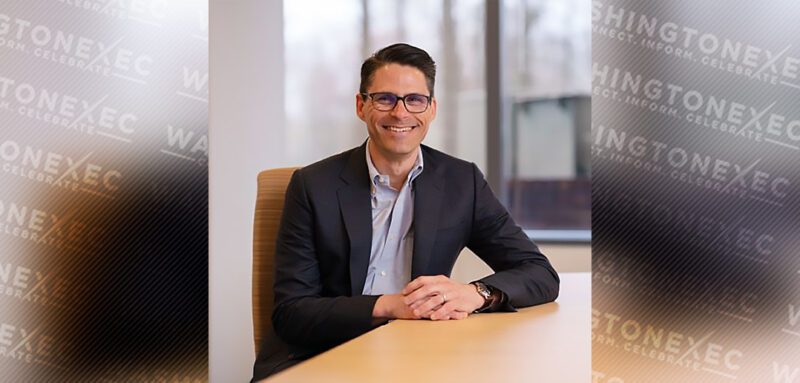
Government agencies know they need to modernize their IT, but many hit a sticking point. The technology people and the subject matter experts don’t always talk, and when they do, they can’t always communicate effectively.
That’s where a capable consultant can add value to the equation.
“We can serve as that translator, because we have subject matter experts and we also have the technologists,” said Mark Lee, senior vice president and public sector group lead with ICF.
Lee has been with ICF his entire career, since finishing graduate school in 1997. He said the company differentiates itself in the crowded GovCon consulting space by focusing on this specific intersection of mission, on the one hand, and IT capability on the other.
“Technology is changing so fast: There are things that we can do now as an afterthought that 10 years ago we couldn’t have imagined,” he said.
At the same time, “there are applications that the CIO may or may not even be involved in,” Lee said. “The CIO owns the infrastructure, but the mission people own the delivery. That relationship is critical.”
ICF has designed its own internal structure to effectively address both sides of that relationship, bringing them together to drive meaningful change.
The company has a particular focus on public health agencies, where the pandemic crisis has highlighted the need for enhanced technological support.
“We’ve learned how important it is to be able to share data quickly and seamlessly,” Lee said. “With the rollout of the vaccine, for example: Where do you go to register? Who has them? All of this has really pointed out some fundamental weaknesses in our public health infrastructure as a whole. Technology is a big part of the solution to that.”
Technology could help make the wheels turn smoother by supporting greater democratization of public health data.
“Data is power, and the more that we can get it in the hands of the people who are making decisions and driving the public health outcomes, the better off we’ll all be,” Lee said.
To help make this happen, Lee and the ICF team bring to the table that critical combination of solid IT chops and a deep understanding of the mission.
Some big GovCon integrators have the tech know-how but lack the domain expertise, he suggested, while strong domain players may not have access to the latest technology capabilities.
“We have those technology capabilities, and we also have the domain expertise,” Lee said. “We’re a bit unique in that we bring both to the table.”
That dual capability is key to ICF’s success and to the success of the agencies it serves.
“With where we’re sitting right now and the kinds of challenges the government faces, that’s a really important combination,” Lee said. “If you understand the mission and you understand what the technology can do, then you can partner with your client to come up with solutions that are really going to deliver.”
This approach can help to drive meaningful tech enhancements while also keeping IT projects within their budgetary constraints.
“These are expensive projects, and budgets are always tight,” he said. ” I cannot remember a time where I’ve had clients talk about how they’re swimming in money. When they do pull the trigger and invest in something, it’s got to deliver. That’s what we really strive to do.”
To hit that mark, ICF puts a strong focus on helping its subject matter experts to address key aspects of the federal mission, ensuring they are tech savvy enough to understand how emerging IT solutions could potentially support agency needs. On the IT side, the firm’s Spark Labs innovation process helps clients to surface new approaches, to understand how the latest IT best practices can potentially support their specific mission needs.
“It’s two sides of the same coin,” Lee said. “We work to deliver that really well-rounded understanding. We don’t expect our domain experts to be technologists, and we don’t expect our technologists to be domain experts. They work together so that our clients get the full breadth of what we can offer.”
Part of bringing folks together is about keeping the lines of communication clear. That’s become especially important during COVID-19, when the usual channels have been disrupted. To that end, the firm has held a series of open-forum Q&A sessions in recent months to ensure employees get all the information they need.
“People are anxious right now,” Lee said. “There’s so much going on, both at home and at work. It’s more important than ever to be transparent, to demonstrate that we’re making an effort. That goes a long way.”
On a personal level, Lee said he was drawn for ICF initially because of the firm’s commitment to creating positive outcomes. That’s still what drives him today.
“We have a culture that is built around doing the right thing,” he said. “Because we talk about doing good, and because we are so focused on the mission, we as an organization are able to have a lot of positive impacts. We’re helping our clients do meaningful work every day.”

